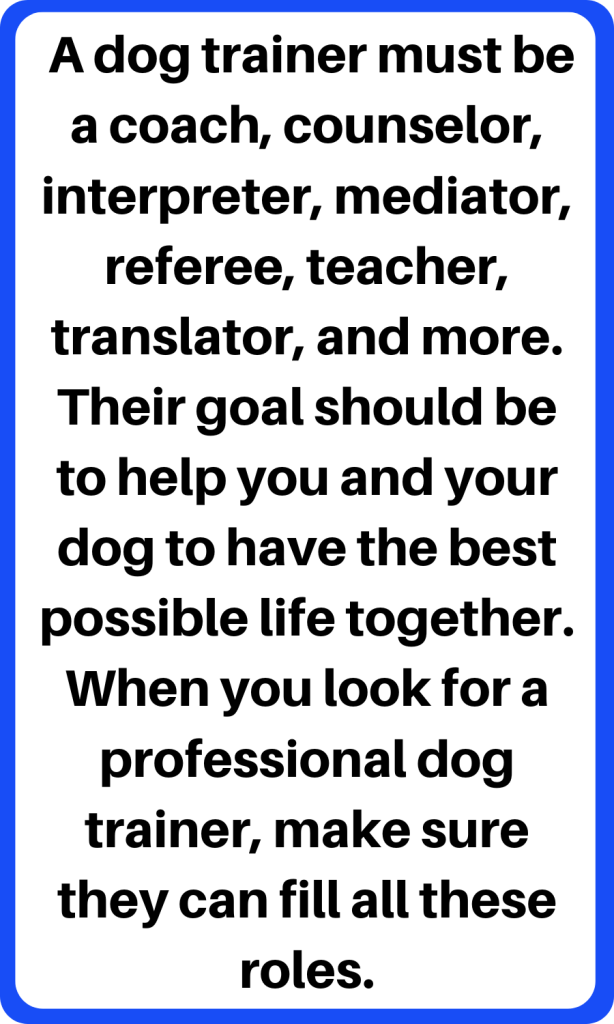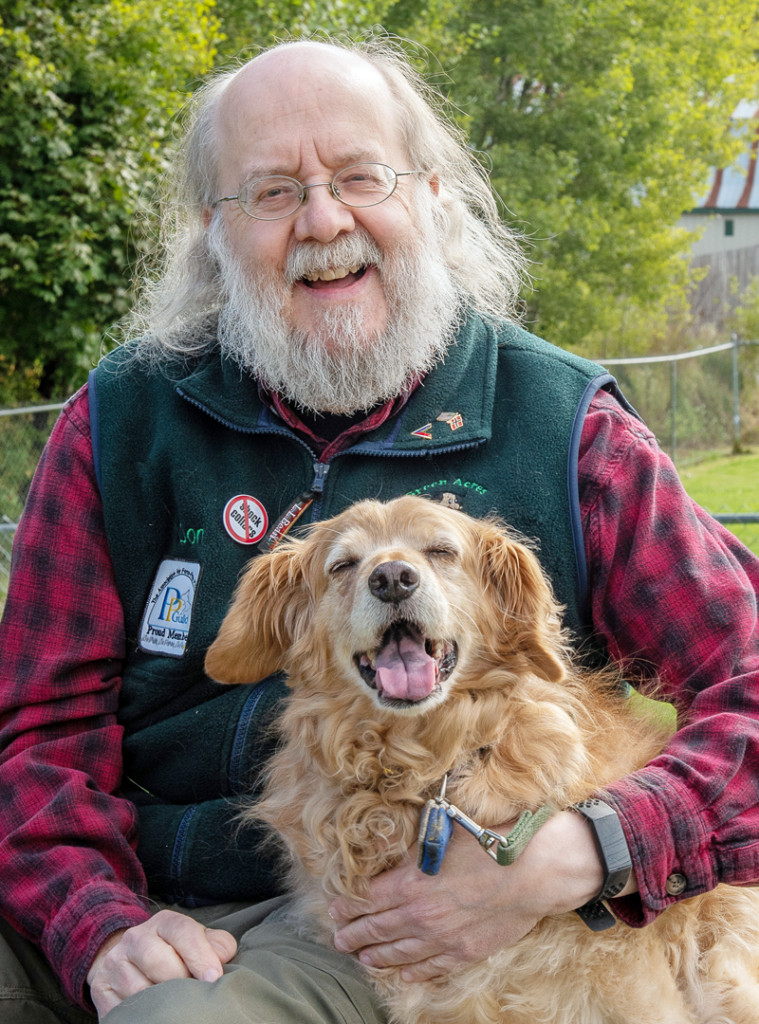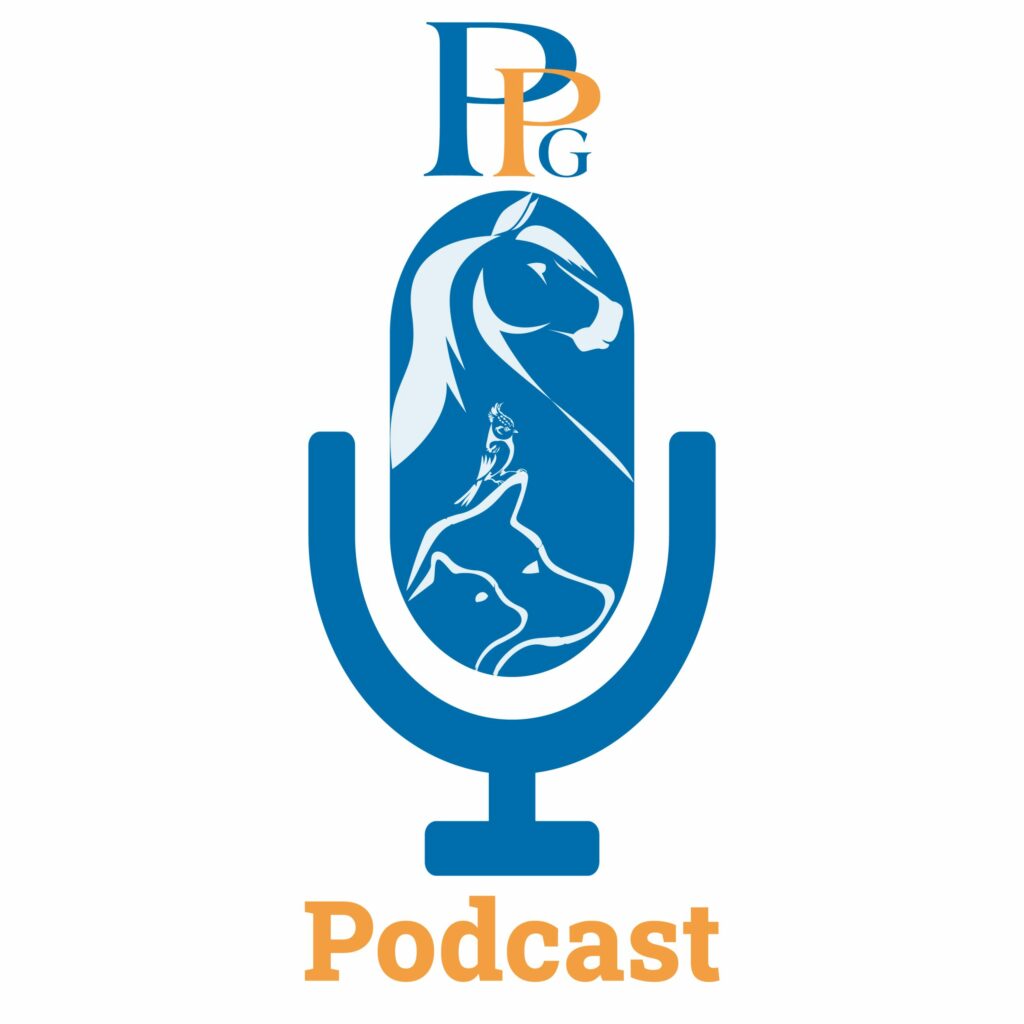Pets and Their People Blog
A Professional Dog Trainer Does So Much More Than Train Dogs
I became a pet care professional in the fall of 1995 when my wife and I became the new owners of Green Acres Kennel Shop. I am fortunate to have entered the profession then because of the many advances in our knowledge of pet behavior, training, and nutrition.
Obedience Class Disaster

In the Spring of 1991, my wife Paula and I brought home our first puppy as a couple, a cairn terrier we named Gus. We wanted to do everything right, so we immediately enrolled ourselves and twelve-week-old Gus in a puppy kindergarten class offered by the local dog club. The class, taught by two “dog trainers,” was a total disaster.
Things went downhill the first night when one of the instructors told me to command Gus to sit, and Gus just stood there with a blank look on his face.
His ignoring my request was neither a big deal nor a surprise to us, as Paula and I knew that Gus had never received any training. However, it was a massive deal for the two instructors. They told me Gus was dominant, and I had to immediately alpha-roll Gus to demonstrate I was in charge. When I did as instructed, Gus started growling and snapping, instinctively sinking his canines deep into my palm. I began bleeding all over the floor. Instantly, I had severely damaged my bond with Gus. We no longer trusted each other.
Like many at the time, the focus of this “dog training” class was to teach us how to be the “Alpha” and to force our dog to sit, down, leave it, come, and walk on a loose leash whenever we asked. The instructors told us to expect blind obedience. Our tools were force, fear, and pain, administered with a choke, prong, or shock collar.
There was no discussion of meeting our dog’s emotional and physical needs, normal and abnormal canine behavior, how dogs communicate and how we can best communicate with them, or how we could enrich Gus’ life with play, sniffing, and other activities. It was all about blind obedience; do it or ELSE! We brought Gus into our life to be a friend, and these alleged “dog trainers” had us treating him terribly.
A Better Way – Partnership
We learned a better way. Thank you, Dr. Patricia McConnell. You helped Gus and I restore our relationship. In the process, Gus also became the catalyst for us to learn about everything canine, leading to our purchase of Green Acres, a move from Wisconsin to Maine, and a dramatic change in careers. I started to study to become a dog trainer and learned:

(Photo by Ayla Verschueren
on Unsplash)
- Dogs are emotional, sentient beings who experience fear, anger, and joy like us.
- As my dog’s partner, I am responsible to ensure they are free from:
- Hunger and thirst,
- Discomfort,
- Pain, Injury or Disease,
- Fear and Distress, and have
- Freedom to express normal behavior. [ FMI – Helping Your Dog Thrive–Brambell’s Five Freedoms]
- Neuroscientists have determined that dogs are cognitively and emotionally equivalent to human toddlers; thus, many will require human supervision and management throughout their lifetime.
- Dogs have innate, normal behaviors that people may find objectionable, such as scavenging, digging, chasing, scent marking, and sniffing, which we need to accept and accommodate if we choose to live with a dog.
- Dogs communicate primarily with body language, so it is essential to understand what they are communicating and how best to communicate with them.
- Dogs are adept at learning and learn best when we reward the behavior we like. The most effective and efficient reward is food.
- Using pain, force, and fear to train a dog is never necessary. It is contrary to their welfare and conflicts with our responsibility to keep our dogs free from pain, injury, or discomfort. It is abuse.
- Dogs do not need to offer blind obedience or to learn a list of specific behaviors to be wonderful companions.
- Dog trainers must be as skilled at teaching people as they are at training dogs.
Finding a Dog Trainer
Earlier this year, I moderated a panel of experienced animal behavior and training professionals as we discussed “Are We Dog Trainers or Teachers? What Best Describes What We Do for Our Clients?” We all agreed we are so much more than dog trainers. We are coaches, counselors, interpreters, mediators, referees, teachers, translators, and more. We do what we can to help people and their dogs have the best possible life together. When you look for a professional dog trainer, recognize you need someone who can do all of those things well and is knowledgeable on all the topics listed above.
About the Author

Don Hanson lives in Bangor, Maine, where he is the co-owner of the Green Acres Kennel Shop and the founder of ForceFreePets.com, an online educational resource for people with dogs and cats. He is a Professional Canine Behavior Consultant (PCBC-A) accredited by the Pet Professional Accreditation Board (PPAB) and a Bach Foundation Registered Animal Practitioner (BFRAP). A Pet Professional Guild (PPG) member, Don serves on the Board of Directors and Steering Committee and chairs the Advocacy Task Force and Shock-Free Coalition. He is also a founding director of Pet Industry Advocacy International (PIAI).
The opinions in this article are those of Don Hanson.
©2025, Donald J. Hanson, All Rights Reserved
Listen to the PPG podcast episode mentioned in this post!
PPG Advocacy Panel: Are We Trainers or Teachers? What Best Describes What We Do for Our Clients?

January 31, 2024 by PPG News
Listen as the PPG Advocacy Panel answers the questions, “Are we trainers or teachers? What best describes what we do for our clients?”
Your Moderator: PPG Advocacy Division Chair Don Hanson
Your Advocacy Panel for this discussion: Beth Adelman, Judy Luther, Sandra Machado, Kim Silver, and Sam Wike
Enjoy listening to the Advocacy Panel’s informal, free-flowing discussion!

